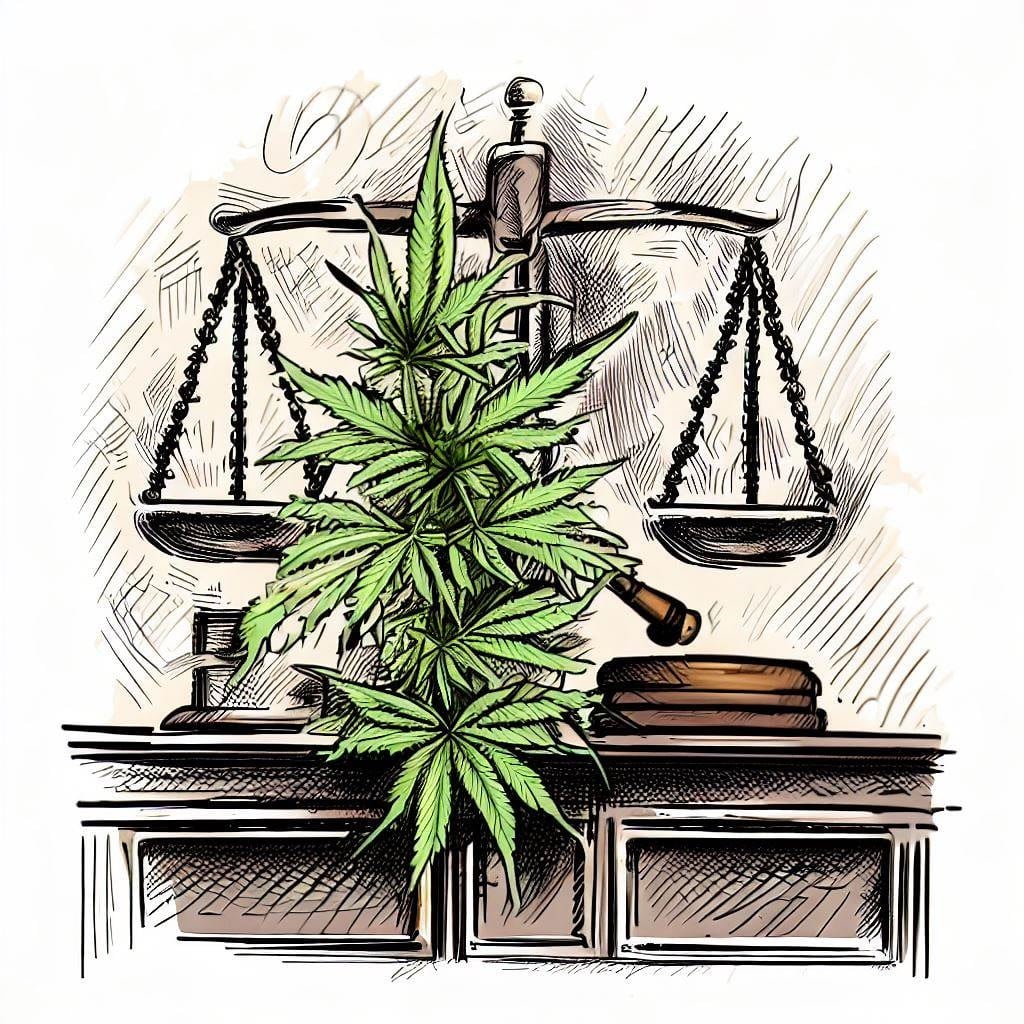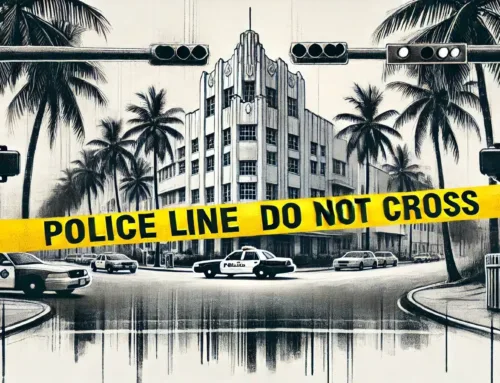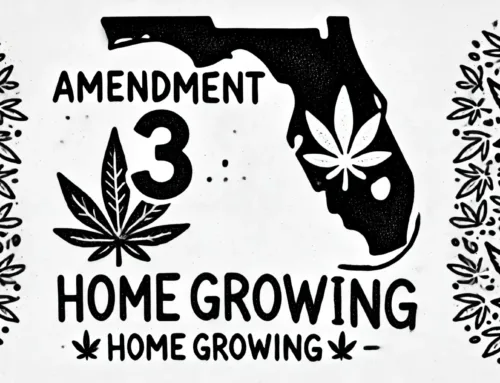Is Weed Legal in Florida?
If you’re wondering, “Is pot legal in Florida?” you’re not alone. As the cannabis industry evolves nationwide, it can be challenging to keep track of the changing landscape of Florida weed laws. Let’s take an in-depth look at Florida cannabis legalization, decriminalizing marijuana possession in Florida, Florida’s medical marijuana law, and the status of substances like Delta-8 and Delta-9 in the Sunshine State.
The State of Florida Weed Laws
Currently, the simple answer to “Is pot legal in Florida?” is yes and no. The full recreational use of marijuana is not yet legalized. The Florida Supreme Court is set to review a legal challenge presented by state Attorney General Ashley Moody, who argues that a proposed constitutional amendment ballot initiative to legalize recreational marijuana violates the state’s constitution. The court has set a deadline of June 12 for opponents to file their briefs, after which it will decide whether to hold oral arguments on the matter. The initiative, titled “Adult Personal Use of Marijuana,” would permit individuals aged 21 and above to possess, purchase, and use marijuana for non-medical purposes. It was sponsored by the political committee Safe & Smart Florida, which gathered enough petition signatures to prompt a Supreme Court review. Attorney General Moody contends that the amendment does not meet the requirements of state law but has not provided further details. If the initiative moves forward and is passed by Fl, it would remove criminal and civil penalties for non-medical marijuana use and allow licensed Medical Marijuana Treatment Centers to sell recreational cannabis products. However, previous attempts to legalize recreational marijuana in Florida have been rejected by the Supreme Court due to concerns about conflicts with federal law, which still prohibits marijuana use.
Nevertheless, Florida pot legalization has progressed in the area of medical use. The Florida medical marijuana use registry allows residents with certain conditions to utilize marijuana as part of their treatment plan.
Florida Cannabis Legalization: The Medical Route
Medical marijuana use in Florida requires you to get a medical marijuana card. Now, you’re probably asking, “How do I get one?” It’s a process that involves a few steps.
Florida medical marijuana law says that you’ll need to have one of the qualifying medical conditions. Florida’s list includes conditions such as cancer, epilepsy, glaucoma, HIV/AIDS, PTSD, ALS, Crohn’s disease, Parkinson’s disease, and multiple sclerosis, among others.
Once you have a diagnosis, you’ll need to be evaluated by a qualified physician who can affirm that the benefits of medical cannabis usage outweigh potential health risks. After this, you apply for the card through the Florida Department of Health’s Office of Medical Marijuana Use.
Remember, while having this card allows you to purchase and use medical cannabis legally in Florida, it doesn’t grant unlimited access. There are regulations on how much you can purchase, and smoking marijuana in public is still illegal under these laws.
Criminal Penalties for Marijuana in Florida
Despite the medical program, the recreational use, possession, sale, or cultivation of marijuana can lead to criminal penalties in Florida under Florida Statute 893.13. Here’s what you could face if you’re caught with marijuana:
- Possession of 20 grams or less can result in a misdemeanor, up to one year in jail, and a $1,000 fine.
- Possession of over 20 grams to 25 lbs can lead to a felony, up to five years in prison, and a $5,000 fine.
- Sale or delivery of 20 grams or less is a misdemeanor, punishable by up to one year in jail and a $1,000 fine. Larger amounts, sales within 1,000 feet of a school, or delivery of any amount to a minor can enhance the penalties significantly.
Decriminalization of Marijuana Possession in Florida: A County-by-County Look
Despite the Florida legislature failure to a law permitting the recreational use of cannabis, several counties and cities in Florida have adopted decriminalization measures, choosing to issue civil citations instead of criminal charges for possessing small amounts of marijuana.
Miami-Dade County’s Approach to Marijuana Decriminalization (2015)
In June 2015, Miami-Dade County made a significant step towards decriminalizing marijuana. With a 10-3 vote, the county commissioners agreed to issue civil citations for possessing up to 20 grams of cannabis. Offenders are required to pay a $100 fine or commit to two days of community service.
Broward County: Civil Citations for Cannabis (2015)
Following Miami-Dade’s decision, Broward County commissioners unanimously voted in November 2015 to allow civil citations for possessing up to 20 grams of cannabis. Penalties are tiered based on repeat offenses: $100 for a first offense, $250 for a second, and $500 for a third.
Palm Beach County’s Stance on Marijuana (2015)
In December 2015, Palm Beach County commissioners approved a similar plan with a 4-1 vote. Possessing of up to 20 grams of cannabis could result in a civil citation. The first and second offenses carry a $100 fine. A third offense cannot be cited, and instead of paying a fine, individuals can opt for 10 hours of community service.
Decriminalization Measures in Tampa (2016)
Tampa city council took a similar approach in March 2016. By a 5-1 vote, they approved the issuance of civil citations for possession of up to 20 grams of cannabis. Penalties include a $75 fine for a first offense, $150 for a second, and $300 for a third.
Orlando’s Marijuana Ordinance (2016)
In May 2016, the Orlando city council also approved the issuance of civil citations for possessing of up to 20 grams of cannabis by a narrow 4-3 vote. The penalty was $100 for the first offense and $200 for the second. Alternatively, offenders can substitute the fines with eight hours of drug education or community service. The program officially commenced in October 2016.
Other Floridian Counties Embracing Decriminalization
Several other cities and counties in Florida have approved similar decriminalization ordinances. These include Miami Beach (2015), Hallandale Beach (2015), Key West (2015), West Palm Beach (2015), Volusia County (2016), Osceola County (2016), Alachua County (2016), Port Richey (2016), Cocoa Beach (2019), and Sarasota (2019).
The decision to decriminalize marijuana possession in these areas marks a significant shift in attitudes toward marijuana use and possession. Despite these changes, however, it’s important to remember that marijuana is still illegal on a federal level and in other parts of the state. Therefore, it’s crucial to stay informed and abide by the local laws of your particular area.
Is Delta-8 Legal in Florida?
Delta-8 THC is often derived from hemp, which is legal under the 2018 Federal Farm Bill. The bill allows for the production and sale of hemp and hemp-derived products as long as they don’t contain more than 0.3% Delta-9 THC, the primary psychoactive compound in cannabis. Therefore, Delta-8 products derived from hemp and meeting this requirement are technically legal under federal law.
Although some states have moved to ban Delta-8 THC despite federal law, Florida has not. So, the short answer to the question of whether Delta-8 is legal in Florida is “yes.” But state law can change rapidly, and it’s always important to consult a legal professional or trusted source for the most up-to-date information.
Is Delta-9 Legal in Florida?
Florida residents often ask, “Is Delta 9 legal in Florida?” The answer lies in the source of the THC. Delta-9 THC derived from hemp is indeed legal in Florida. This is a result of the 2018 Farm Bill that federally legalized hemp-derived products with Delta-9 THC content not exceeding 0.3%. Furthermore, Florida marijuana law allows residents to purchase and use hemp-derived Delta-9 THC products within the stipulated limits.
Floridians registered under the state’s medical cannabis program can also buy marijuana-derived Delta-9 products containing up to 0.8% Delta-9 THC but within the state’s possession limits.
Florida Pot Legalization: A Moving Target
Florida weed laws can be confusing, but it’s crucial to stay informed to avoid any potential legal issues. If you find yourself in trouble or need more specific advice, it’s a good idea to consult a legal professional who understands and can explain the state of cannabis legalization in Florida.
Remember, the landscape of marijuana laws is rapidly changing, so stay updated on the latest news regarding Florida pot legalization. In the meantime, make sure you’re adhering to current laws to ensure your safety and avoid potential legal complications.
CALL US for a FREE CONFIDENTIAL CONSULTATION at (305) 538-4545, or take a moment to fill out our secure intake form.* The additional information you provide will greatly assist us in responding to your inquiry.
ALWAYS INVESTIGATE A CRIMINAL DEFENSE ATTORNEY’S QUALIFICATIONS AND EXPERIENCE BEFORE MAKING A DECISION ON HIRING A LAWYER FOR YOUR CRIMINAL CASE IN MIAMI-DADE COUNTY









